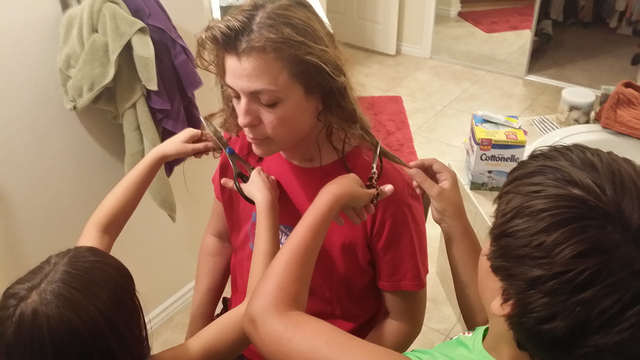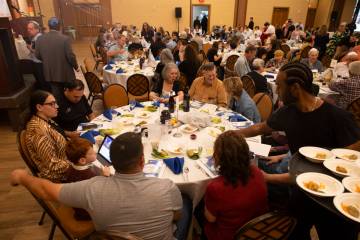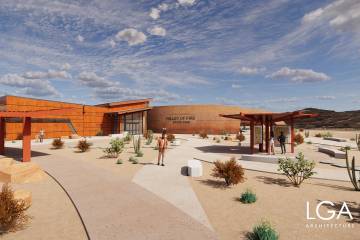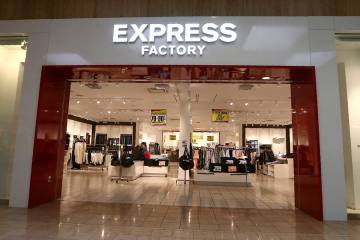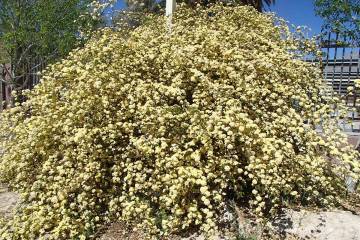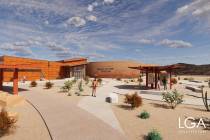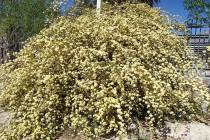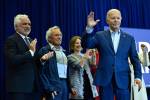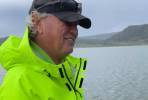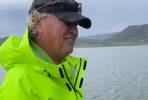Las Vegas mother and daughter battled breast cancer at the same time, with the same doctor
Exercising, eating healthily and a love for shopping are only a few things that northwest-area resident Tiffany King inherited from her mother, De Salazar. Becoming a fighter in the face of adversity is something they learned together.
King and Salazar were diagnosed with breast cancer in 2015.
When King, 44, was diagnosed with breast cancer in April, she said she was shocked. She had just returned from celebrating her 10-year wedding anniversary in Napa, Calif., when she came home to mail that showed a suspicious mammogram.
“The first thing that went through my head was, ‘What did I do wrong?’ ” King said. “Did I eat wrong? Was I too stressed? Is it my environment?”
She had a biopsy done and was referred to a breast surgeon, Dr. Josette E. Spotts, at the Comprehensive Cancer Centers of Nevada. She learned she had an early stage of invasive ductal carcinoma, which is when abnormal cancer cells that began forming in the milk ducts have spread beyond the ducts into other parts of the breast tissue, according to nationalbreastcancer.org.
She was given two choices: doctors could perform a lumpectomy or a mastectomy.
Lumpectomy is surgery to remove cancer or other abnormal tissue from your breast. Unlike a mastectomy, a lumpectomy removes a portion of the breast.
She chose to do a double mastectomy and breast reconstruction.
“I told them to take them off because I don’t need them,” King said. “I was scared, but I didn’t want to deal with a possible recurrence.”
Her type of cancer was stage 1, HER2-positive. Cancers that are HER2-positive have too many copies of the HER2/neu gene, resulting in greater than normal amounts of the HER2/neu protein. These cancers tend to grow and spread more aggressively than other breast cancers, according to cancer.org.
After performing the reconstruction of her breasts, King developed a painful infection, but she kept fighting. Since the cancer was caught at an early stage, she also opted to do chemotherapy and take Herceptin, a drug used to treat the spreading of breast cancer, because it would give her a 90 percent chance of the cancer never coming back.
She is currently done with treatment but waiting to finish the breast reconstruction in June or July.
Comprehensive Cancer Centers of Nevada’s Dr. Mary Ann Allison is her medical oncologist. Allison said one in eight women get breast cancer and added that the rate of breast cancer has remained the same for the last 25 to 30 years.
“The only reason women are hearing about it more is because people are talking about it more and becoming more aware of it,” she said.
Tiffany did not tell her children, Tylah, 8, and Devin, 10, right away because she did not want to scare them. She decided to tell them before she started chemotherapy and knew her hair would fall out.
When it was time to shave her head, both her son and daughter helped her.
Toward the end of her final treatment, more bad news hit when Salazar, 65, was diagnosed with breast cancer in November.
“I haven’t done a mammogram in 10 years,” Salazar said. “The only reason that I did it was because of my daughter.”
She waited to tell King until she was done with her final chemo treatment.
Salazar was diagnosed with a different type of cancer — stage 2, HER2-negative — and opted for a lumpectomy and radiation. Spotts and Allison were also her doctors.
Unlike King, cancers that don’t have excess HER2 are called HER2-negative. These cancers do not respond to treatment with drugs that target HER2, according to cancer.org.
“I was upset that my mom didn’t tell me right away,” King said. “I understood why she did it, but I wanted to be there for her like she was there for me.”
Despite going through a traumatic experience together, both women said cancer has also shown them the “good side of humanity.”
“Everywhere I go, people stop and start talking to me about a friend or family member that has been affected by cancer, or they ask me how I’m feeling and let me know how brave I am,” King said. “One time, a waitress and cancer survivor gave me her number and told me to call her if I have any questions.Another time, a cashier at Trader Joe’s gave me a bouquet of flowers. Another time, a bartender gave me a $100 bottle of wine. There are a lot of good people in this world.”
King and Salazar now make it their mission to remind other women how important it is to get a mammogram.
Since spreading their message, King’s aunt, cousin and a few of King’s and Salazar’s co-workers have caught an early detection of breast cancer.
“We’re both slim, we exercise, and we eat right,” Salazar said. “You don’t think this will happen to you, but it can.”
That is why Allison recommends women get mammograms starting at 35.
“My mother is my best friend,” King said. “We’re always on the phone together, and we hang out on weekends. No one can replace a mother’s love. She is the greatest caretaker. Cancer has taught us that every day is special, and it’s just made us stronger. I’m so happy to be alive, and I’m happy that my mom is here with me.”
To reach North View reporter Sandy Lopez, email slopez@viewnews.com or call 702-383-4686. Find her on Twitter:@JournalismSandy.





